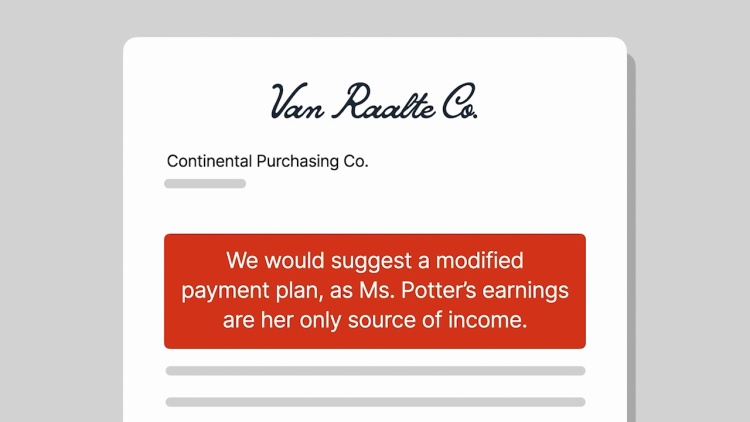Continental Purchasing Co. v. Van Raalte Co.
New York Supreme Court, Appellate Division
295 N.Y.S. 867 (1937)
- Written by Megan Petersen, JD
Facts
Ethel Potter was employed by Van Raalte Co. (defendant). Ethel owed money on an account at the Steckler Sporting Goods Store. Potter’s account had been purchased by Continental Purchasing Co. (Continental) (plaintiff). As payment of her debt on the account, Potter assigned to Continental all “wages, or claims for wages, salary, or commission earned, or to be earned.” This included her wages both earned and to be earned from Van Raalte. Continental notified Van Raalte in writing of Potter’s assignment of her wages to Continental. Van Raalte acknowledged the assignment and proposed a modified payment scheme whereby Van Raalte would pay Continental a few dollars out of each of Potter’s paychecks until the full debt was satisfied. Continental agreed to this modified arrangement, and Van Raalte made six payments of $1.50 to Continental from Potter’s wages. After some time, Potter’s situation was referred to a charity, and Van Raalte discontinued making payments to Continental. Instead, Van Raalte disregarded the assignment and paid all the money due directly to Potter. Continental brought suit in New York State court against Van Raalte seeking the remaining $19.20 due to it based on Potter’s account. Van Raalte defended on the ground that it already paid the money to Potter. The trial court entered judgment for Van Raalte, and Continental appealed.
Rule of Law
Issue
Holding and Reasoning (Edgcomb, J.)
What to do next…
Here's why 911,000 law students have relied on our case briefs:
- Written by law professors and practitioners, not other law students. 47,100 briefs, keyed to 997 casebooks. Top-notch customer support.
- The right amount of information, includes the facts, issues, rule of law, holding and reasoning, and any concurrences and dissents.
- Access in your classes, works on your mobile and tablet. Massive library of related video lessons and high quality multiple-choice questions.
- Easy to use, uniform format for every case brief. Written in plain English, not in legalese. Our briefs summarize and simplify; they don’t just repeat the court’s language.





